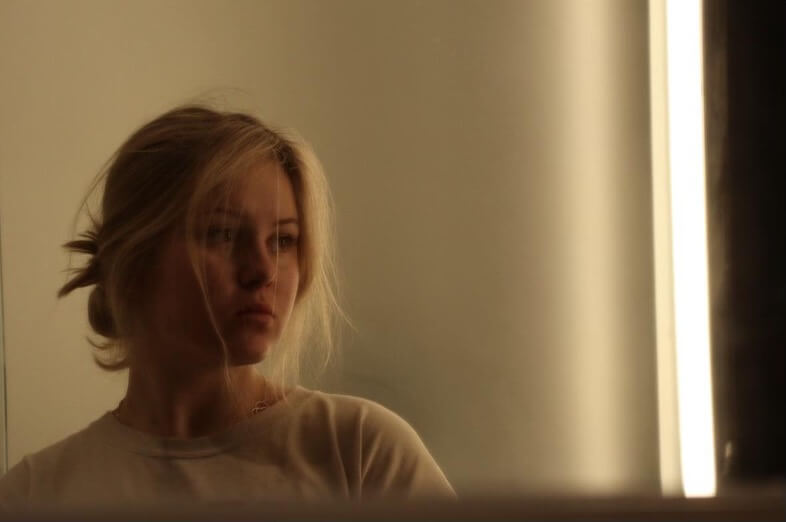
Grieving the End of a Friendship as a Young Person
As a young adult, you don’t expect to grieve people who are still alive.
But that’s exactly what happened to me. I realized someone I once shared everything with—inside jokes, long nature walks, voice notes at 2 a.m.—was no longer part of my life in the same way. Not completely gone. We still followed each other on social media. We still watched each other’s Instagram stories. But something had shifted. They stopped reaching out. Eventually, so did I.
It wasn’t explosive or dramatic. It was quiet. And somehow, that made it worse.
There was no breakup. No “I can’t do this anymore” text. Just distance, and the ache that followed. I didn’t know how to explain it to anyone. It wasn’t a death. It wasn’t romantic. But it felt like something had died. And I didn’t feel like I was allowed to mourn it.
I know I’m not the only one.

Photo courtesy: Pexels (@Cottonbrostudio)
Why Friendship Grief Hurts
Psychologists have a name for losses like this: ambiguous loss. Coined by family therapist and researcher Dr. Pauline Boss, the term refers to losses that are unclear, undefined and lack closure.
The friend you no longer speak to still exists in the world, but not in your life. That absence of finality can make the grief harder to process. There’s no official “end,” but everything feels different.
According to Boss, ambiguous loss is one of the most stressful types of grief. It can disrupt the natural grieving process, leaving people emotionally stuck. And it’s a kind of loss many of us experience in our 20s, when life shifts rapidly and friendships often drift or dissolve without warning.
What makes it harder is the lack of recognition. There are no sympathy cards, no casseroles dropped off by neighbours. If you open up about it, people might respond with, “You’ll make new friends,” or “That’s just life, people come and go.”
But neuroscience tells a different story. Studies have found that social pain activates the same areas of the brain as physical pain. Research published in Science shows that emotional rejection and loss trigger the anterior cingulate cortex, the same region that processes physical injury. In other words, it hurts. And yes, your body is keeping score.
The Way It Ends Matters
One thing I’ve learned: how a friendship ends shapes how we grieve it.
Sometimes, the ending is mutual. You both grow and drift apart. It still stings, but it’s gentler.
Other times, it’s sudden. A betrayal. A ghosting. An unexpected blow-up. These often come with confusion, shock, and self-blame.
Then there’s the slow drift, the one no one talks about enough. No argument. No turning point. Just a gradual erosion. You tell yourself, “I’ll reach out next week,” until weeks stretch into silence.
The hardest losses to process are the ones without a clear goodbye. These unresolved disconnections can trap us in cycles of doubt, rumination, and longing.
Why It Hits So Deep
Friendships aren’t just about fun or companionship; they help shape our identity.
Psychologist Dr. Niobe Way has written extensively about adolescent and early adult friendships, calling them emotional “lifelines.” In early adulthood, friends aren’t just people we spend time with, they’re mirrors we use to understand ourselves.
Through shared playlists, late-night conversations and mutual growth, we figure out who we are. So, when a friendship ends, it doesn’t just take the other person with it, it can take a part of us, too.
How to Heal From a Friendship Ending
So… how do you grieve someone who didn’t die?
It’s not easy. But here’s what helped me, and what research supports:
1. Name what you’re feeling.
Acknowledging the experience as grief helps validate it. Ambiguous loss theory shows that naming our emotions can ease internalized shame and promote healing.
2. Create your own closure.
If there was no goodbye, make your own. Write a letter (even if you never send it), journal, delete old messages, or create a personal ritual. These acts can help set emotional boundaries.
3. Let it change you.
Ask yourself: What did this friendship teach me? What do I want from future friendships? You don’t need to find a silver lining right away. But reflection can bring clarity and growth. It’s okay to raise your standards.
From Grief to Growth
If you’ve lost a friendship and it still hurts: we see you.
You’re not being dramatic, you’re being human. It means you care. It means you invested in someone who mattered. And it means you’re allowed to grieve, whether it ended in fireworks, silence, or a single unread message.
Here’s what I know now:
- You can miss someone and still accept they’re not meant to stay.
- You can love the past while making space for the present.
- You can let go without erasing what you had.
Grieving the end of a friendship is real. So is your ability to move forward with tenderness, resilience and a better understanding of what you need.
Photo courtesy: Pexels (@Tarawinstead)
About the author

Autumn Brambell





